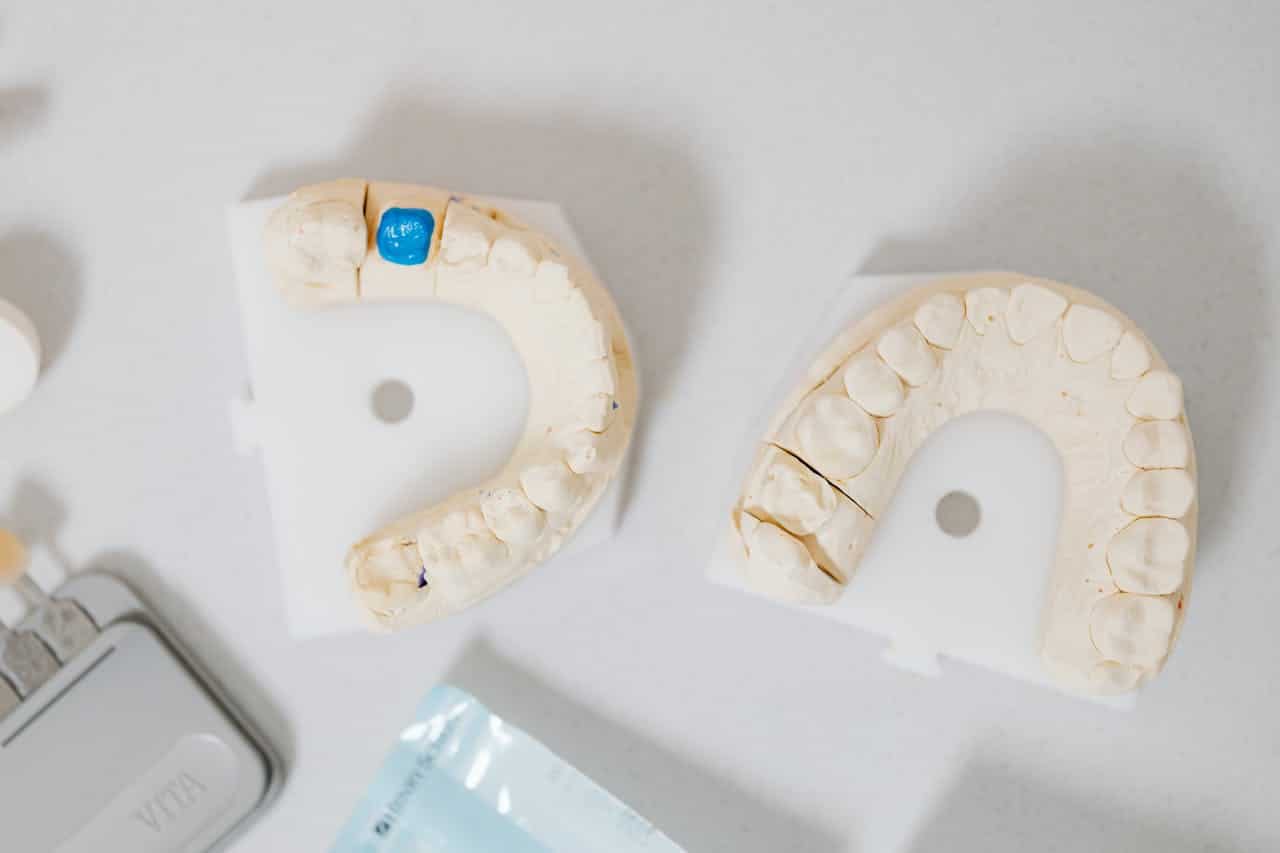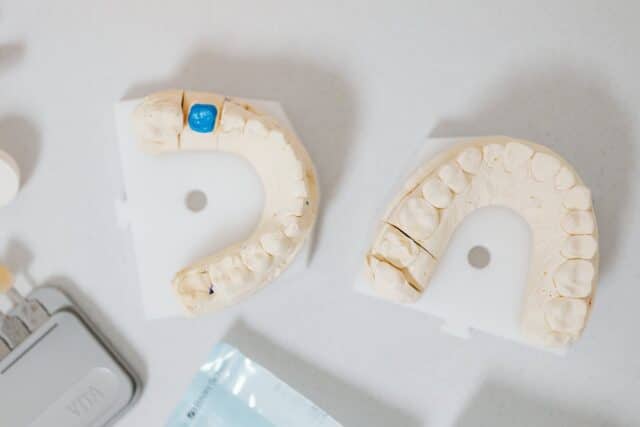Dental crowns are fundamental in restorative dentistry, helping patients preserve their dental health and enhance their smiles. Whether you’re dealing with a damaged tooth, severe decay, or cosmetic imperfections, a crown can effectively restore function and aesthetics.
Understanding the types of dental crowns and costs associated with the procedure can help you confidently navigate your dental health journey.

What Are Dental Crowns?
A dental crown is a cap placed over a tooth to restore its shape, size, strength, and appearance. Crowns are custom-made to fit over the tooth, completely covering it above the gumline. They are often recommended when a tooth is damaged but salvageable, providing an alternative to extraction and preserving your natural tooth structure.
Dental crowns serve multiple purposes, such as:
- Protecting weak teeth from breakage.
- Restoring a damaged tooth.
- Covering and supporting teeth with a large filling.
- Securing a dental bridge.
- Improving the appearance of discolored or misshapen teeth.
Do You Need a Dental Crown?
Whether you need a crown depends on your dental health and specific concerns. Your dentist might recommend a crown if you experience:
- Severe decay that cannot be treated with a filling alone.
- Cracked or fractured teeth that require reinforcement.
- Cosmetic concerns, such as misshapen or severely discolored teeth.
- Root canal treatment, where the tooth becomes weak and vulnerable.
- Missing teeth, where crowns are part of a dental bridge or supported by implants.
What Does Getting a Crown Involve?
Patients typically need two visits to the dentist to get dental crowns:
First Visit: Preparing the Tooth
- The dentist examines the tooth and prepares it by reshaping it to accommodate the crown.
- If the tooth is significantly decayed or damaged, a filling material may be used to rebuild its structure.
- Impressions of the tooth are taken to create a custom crown.
- A temporary crown is placed to protect the tooth.
Second Visit: Placing the Crown
- The temporary crown is removed, and the permanent crown is checked for fit and color.
- Once adjustments are made, the crown is cemented into place, restoring the tooth’s functionality and appearance.
What Crown Should I Choose?
Dental crowns are available in various materials, each with their own unique benefits. The types of dental crowns and costs associated with the procedure depend on factors like the location of the tooth, your aesthetic preferences, and your budget. Here are the most common types:
Metal Crowns
- Superior durability and resistance to chipping or cracking.
- Minimal tooth structure removal is required during preparation.
- Long lifespan with minimal wear to opposing teeth.
Metal crowns are crafted from gold, platinum, or base-metal alloys, making them highly durable and long-lasting. They are ideal for withstanding chewing and biting pressure, especially in molars and premolars. Despite their strength, they are not aesthetically appealing due to their metallic appearance.
These are best for patients who:
- Need crowns for molars where strength is a priority.
- Need a long-term solution with minimal maintenance.
- Are unconcerned about the metallic appearance, as they are not typically visible.
Porcelain-Fused-to-Metal (PFM) Crowns
- A strong metal base provides stability and durability.
- Natural tooth-like appearance due to porcelain coating.
- More cost-effective than all-ceramic crowns.
PFM crowns combine a metal base with a porcelain outer layer, balancing durability with aesthetics. These crowns are widely used for their versatility, offering the strength of metal and the natural look of porcelain, making them suitable for both front and back teeth.
These are best for patients who:
- Require a balance of strength and aesthetics.
- Need crowns in both the front and back areas of the mouth.
- Are on a budget but want a durable and aesthetic option.
Ceramic or Porcelain Crowns
- Closely matches the color and translucency of natural teeth.
- Biocompatible and metal-free, ideal for patients with sensitivities.
- Provides a seamless aesthetic, especially in highly visible areas.
Ceramic or porcelain crowns are made entirely of porcelain, providing the most natural-looking results. They are biocompatible and metal-free, making them ideal for those with allergies or aesthetic concerns. While they are less durable than metal crowns, their lifelike appearance makes them a popular choice for front teeth.
These are best for patients who:
- Need crowns for front teeth or highly visible areas.
- Have metal allergies or sensitivities.
- Prioritize aesthetics over extreme durability.
Resin Crowns
- The most affordable option among crown materials.
- Easy to modify and repair if needed.
- Quick fabrication, often used for temporary crowns.
Resin crowns are made from composite resin, offering an affordable option for dental restoration. While less durable than other crown materials, they provide a functional and cost-effective solution for temporary or transitional restorations.
These are best for patients who:
- Need a budget-friendly solution for dental restorations.
- Require temporary use while waiting for a permanent crown.
- Need quick repairs or adjustments.
Zirconia Crowns
- Extremely strong and resistant to wear and fractures.
- Can be matched to the natural tooth color.
- Biocompatible and less likely to cause allergic reactions.
Zirconia crowns are crafted from zirconium dioxide, a robust ceramic material known for its strength and aesthetics. They balance durability and appearance, making them a top choice for long-lasting dental restorations.
These are best for patients who:
- Require crowns in areas subject to heavy chewing forces.
- Are seeking a natural-looking and durable option for front or back teeth.
- Have allergies to metals or other materials.
What Is the Cost of Dental Crowns?
The cost of getting dental crowns can depend on the material, the complexity of the procedure, and more. Insurance plans often cover part of the cost for crowns deemed medically necessary. On average, you can expect the following price ranges:
- Metal Crowns: $500 to $1,500 per tooth.
- PFM Crowns: $600 to $1,800 per tooth.
- Porcelain Crowns: $800 to $2,000 per tooth.
- Resin Crowns: $300 to $800 per tooth.
- Zirconia Crowns: $1,000 to $2,500 per tooth.

Discover the Right Dental Crown with Archpoint Implant Dentistry
Dental crowns are a versatile and effective solution for restoring teeth and enhancing smiles. Several types and cost structures are available, so the decision on which crown to choose depends on your specific dental needs.
At Archpoint Implant Dentistry, we are committed to guiding you through the process, from consultation to placement, ensuring you achieve optimal results.








